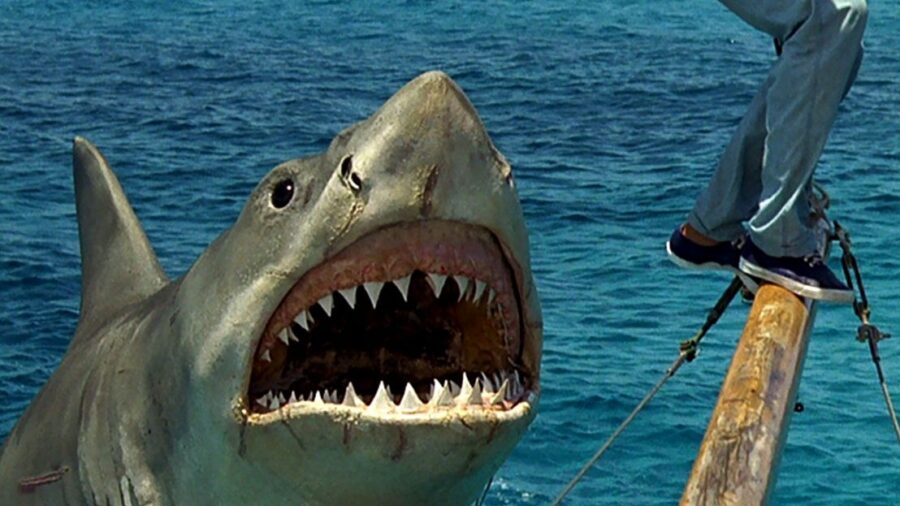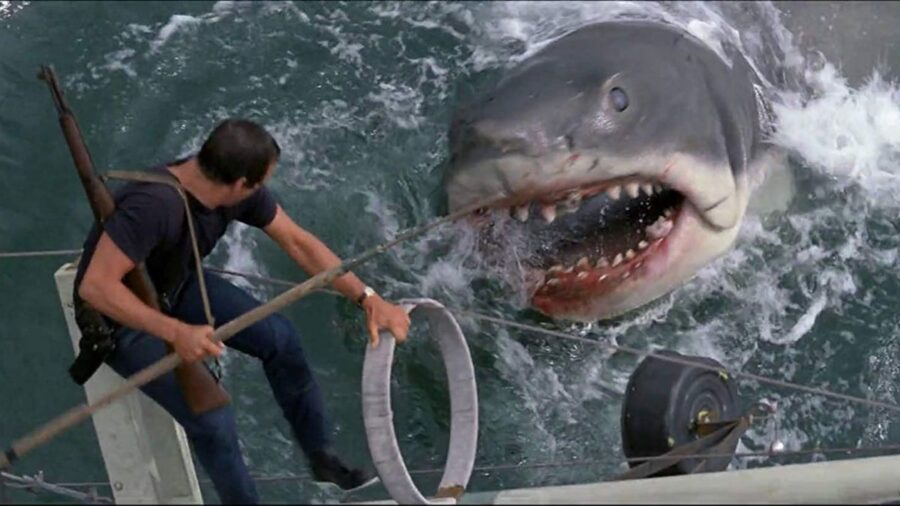Sharks Attack Boat Carrying A Netflix Documentary Film Crew
Crewmembers filming Our Planet II for Netflix on a small inflatable boat in Hawaii were attacked by sharks.

The crew of the Netflix climate documentary series, Our Planet II, had a terrifying experience with tiger sharks measuring 15 feet in length. An incident occurred in Hawaii when the sharks aggressively targeted the crew, attacking the boat and inflicting significant damage. The show’s director, Toby Nowlan, recalled the incident in an interview with the Radio Times.
“This v of water came streaming towards us, and this tiger shark leaped at the boat and bit huge holes in it. The whole boat exploded,” Nowlan told the publication. “We were trying to get it away, and it wasn’t having any of it. It was horrific. That was the second shark that day to attack us.” The crew was operating an inflatable boat near Laysan, a remote island located in Northwestern Hawaii.
They aimed to capture footage of tiger sharks hunting and preying upon young albatross fledglings. Fortunately, the film crew found themselves within 330 feet (100 meters) of the shoreline. The distance allowed them to maneuver the boat, which had barely enough air left, to the beach. They quickly repaired the vessel and dispatched a small rubber dinghy.
However, it was swiftly besieged by giant trevallies (fish) that rendered its motor inoperable. According to Nowlan, the sharks’ behavior was very unusual. “They were incredibly hungry, so there might not have been enough natural food, and they were just trying anything they came across in the water,” he said of the attack.
Huw Cordey, a producer on Our Planet II, shared more details about the unruly sharks, describing them as something out of Jaws. “The crew was panicked and basically made an emergency landing on the sand,” he said. As a result, the underwater shoot was a bust, and the production team was just happy to have survived the ordeal.

Narrated by David Attenborough, the four-part climate documentary, serving as a sequel to the initial eight-episode series of Our Planet, was released on Netflix on June 14. The first installment debuted on the streaming platform in 2019. The series explores the mystery of animal migration and the impact of climate change on wildlife.
Along with tiger sharks, Our Planet also features stunning footage of Earth’s wildlife, including wild elephants trekking on an arduous two-year journey into China, swarms of continent-crossing locusts
Shark attacks are rare, but they can be fatal. Each year, approximately 80 unprovoked shark attacks are reported worldwide. However, it is essential to note that out of the over 489 shark species, only three (the great white, tiger, and bull sharks) have been responsible for double-digit numbers of fatal, unprovoked human attacks.
As a result, the assumption that these large predatory sharks actively seek humans as prey is still subject to discussion. Sharks possess remarkable sensory capabilities, which can lead them to perceive specific cues as potential prey. Even minor traces of blood, recent cuts or abrasions, or the glimmer of shiny jewelry can inadvertently attract these marine predators.
Understanding these factors can help individuals minimize potential risks while engaging in oceanic activities. Despite some alarming incidents, experts such as Kayleigh Grant, the founder of Kaimana Ocean Safari in Hawaii, emphasize that people should not fear sharks, as they are often misunderstood creatures.
Grant asserts that sharks are not actively seeking human encounters and that media portrayals, as seen in movies like Jaws, often perpetuate misconceptions. As such, recognizing the species involved, understanding attracting factors, and adopting appropriate safety measures can help minimize risks associated with human-shark interactions.












